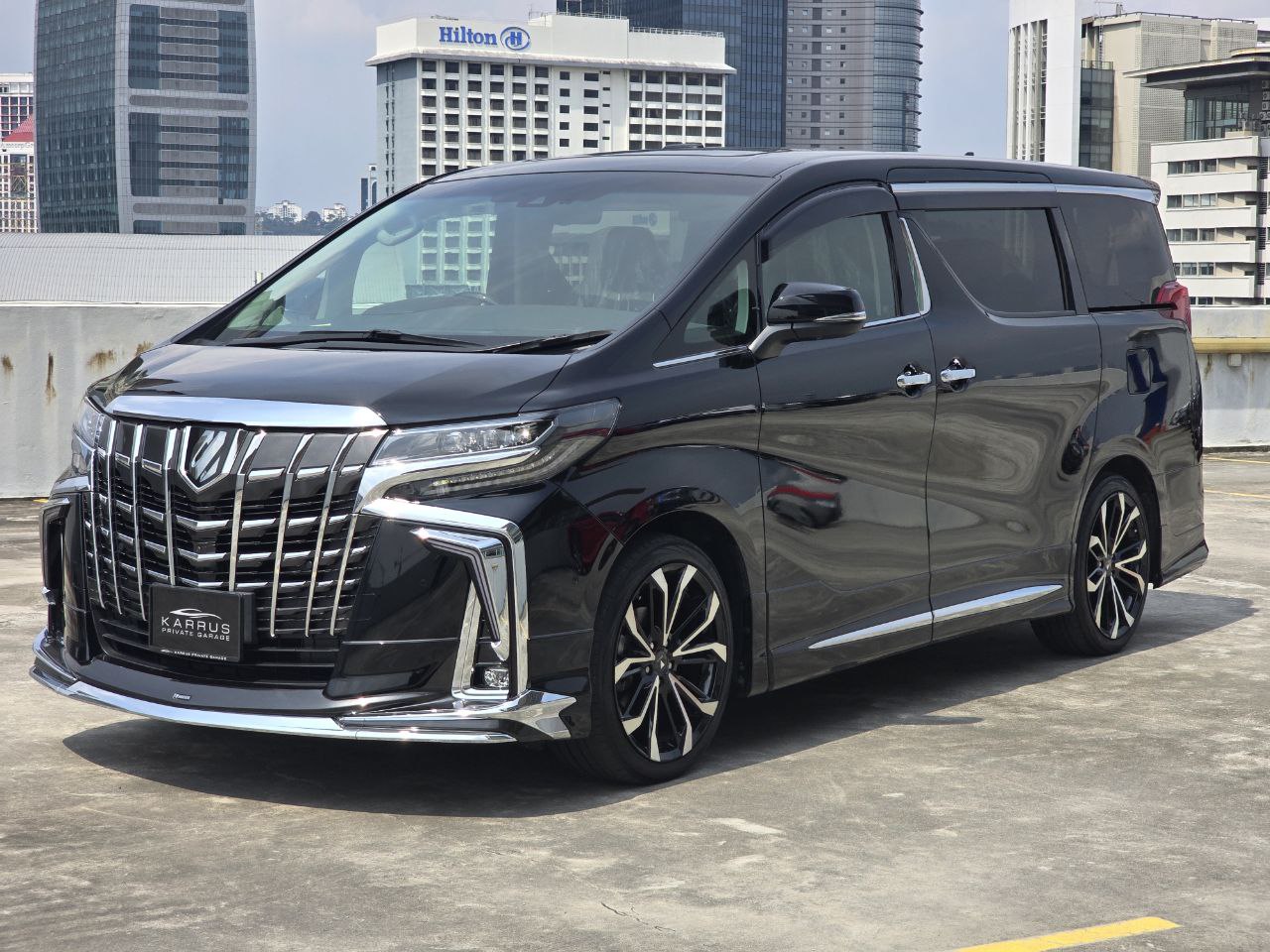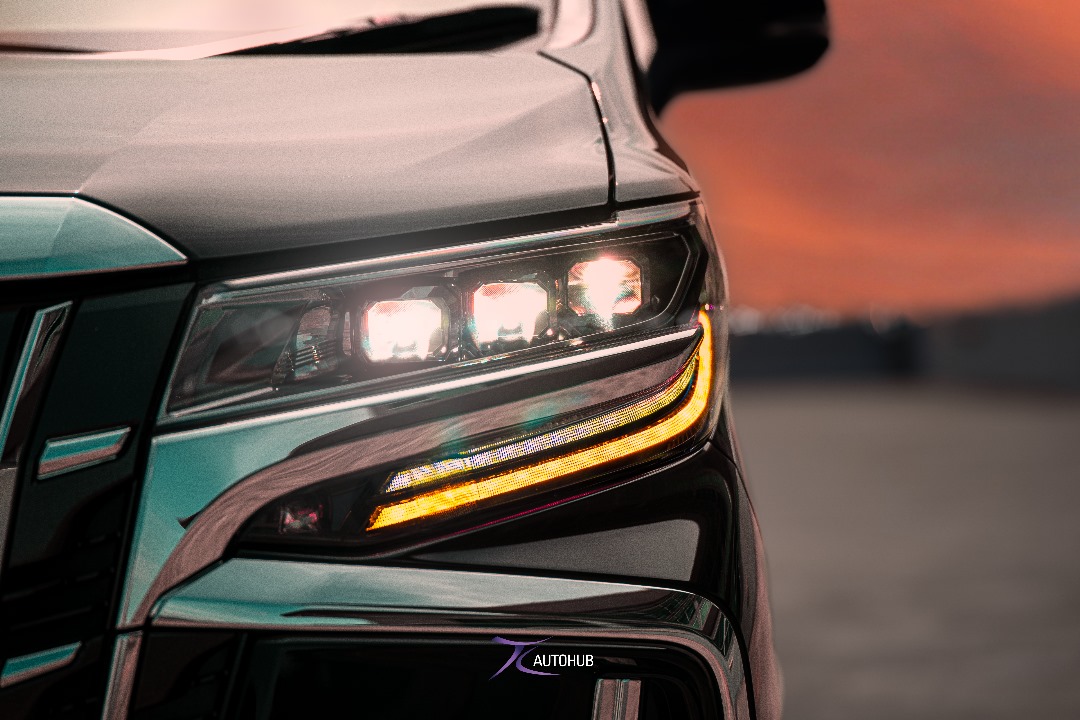
Alphard SC: Why It’s a Popular Choice in Ma ..
Aug 09 - 2025

12
Sep
Buying a used car in Malaysia can be a smart financial decision, offering significant savings over a new vehicle while still providing reliable transportation. However, the process requires careful consideration to ensure you’re getting a good deal and avoiding potential pitfalls. Whether you’re a first-time buyer or a seasoned car owner, understanding the key aspects of purchasing a used car can save you time, money, and future headaches.
With a growing number of used car listings in Malaysia, the options can seem overwhelming. From determining your budget to inspecting the car and verifying its documentation, each step is crucial to making an informed purchase. The used car market in Malaysia is diverse, with vehicles ranging from budget-friendly options to luxury models, making it essential to know what to look for to meet your specific needs and preferences.
In this guide, we’ll walk you through 7 essential tips for buying a used car Malaysia. These tips are designed to help you navigate the buying process confidently and make a purchase that suits your budget, lifestyle, and long-term plans. By following these guidelines, you can avoid common mistakes and ensure that the used car you choose is both reliable and a good value.
When setting a budget for buying a used car in Malaysia, it’s important to think beyond the purchase price. Consider additional costs such as insurance, road tax, maintenance, and any immediate repairs that may be needed. These expenses can add up quickly, so ensure that your budget accounts for the total cost of ownership.
Even though used cars depreciate slower than new cars, depreciation still plays a role in your investment. Consider how the car’s value will change over time, especially if you plan to sell it in the future. Some models hold their value better than others, making them a smarter long-term investment.
If you’re planning to finance your used car purchase, be realistic about what you can afford. Consider the interest rates, loan terms, and how much you can comfortably pay each month. Make sure your financing plan aligns with your overall financial goals.
Before making a decision, compare prices across different listings to get a sense of the market. Look at various platforms and dealerships to see how similar models are priced. This will help you identify a fair deal and avoid overpaying for your used car Malaysia.
Online tools and resources, such as car valuation websites, can provide valuable insights into the average market price for the car you’re interested in. These tools can help you negotiate better and ensure you’re not paying above market value.
Car prices can fluctuate based on seasonal trends. For example, prices may be higher during festive seasons when demand increases. Timing your purchase to avoid these peaks can save you money.
Determine what features are non-negotiable for your used car. Whether it’s fuel efficiency, safety features, or entertainment systems, knowing your must-haves will help you narrow down your options and focus on cars that meet your needs.
Consider your preferences for car models and makes. Some brands are known for their reliability and low maintenance costs, while others may offer more luxury or performance features. Choose a model that aligns with your lifestyle and driving habits.
Think about the long-term resale value of the car. Some models depreciate more slowly, making them a better investment if you plan to sell the car in a few years. Research which cars hold their value best in the Malaysian market.
When inspecting a used car, pay close attention to the exterior for any signs of rust, dents, or damage. Rust can indicate underlying issues that may worsen over time, while dents and scratches could signal previous accidents. Check the paint job to ensure it’s consistent, as mismatched paint could indicate repairs from a collision.
Tires are a critical part of the vehicle's safety and performance. Check the tire tread depth and look for any signs of uneven wear, which could indicate alignment issues. Additionally, inspect the brakes for wear and tear. Worn-out brakes can be expensive to replace and may pose a safety risk.
Inside the car, inspect the upholstery for any tears, stains, or excessive wear. Test all the controls, including the air conditioning, radio, and power windows, to ensure they are functioning properly. A well-maintained interior is a good sign that the previous owner took care of the vehicle.
Pop the hood and check the engine bay for any signs of leaks, corrosion, or worn belts. A clean engine bay is usually a sign of good maintenance, but make sure to look beyond the surface for any potential issues. Check the oil level and color, as well as the coolant and transmission fluid, to ensure everything is in order.
Modern cars rely heavily on electronic systems, so it’s essential to test all the electronics during your inspection. This includes the headlights, turn signals, dashboard lights, and any other electronic features. Malfunctioning electronics can be costly to repair and may affect the car’s overall performance.
Start the car and listen for any unusual noises, such as knocking, rattling, or squealing. These sounds can indicate engine problems or issues with the exhaust system. Take note of any vibrations or irregularities during idling, as these could be signs of mechanical issues.
During the test drive, evaluate the car’s overall performance. Pay attention to acceleration, braking, and steering responsiveness. The car should feel smooth and stable on the road, with no hesitation or jerking when accelerating or shifting gears.
Take the car over different types of roads to test the suspension and handling. The car should handle well in turns and absorb bumps smoothly. Listen for any clunking noises from the suspension, which could indicate worn-out components.
Finally, assess the car’s comfort and visibility. Make sure the seats are comfortable and provide adequate support. Check the visibility from all angles, including blind spots, to ensure you’ll have a safe driving experience.
Before finalizing the purchase of a used car Malaysia, it’s crucial to verify all the necessary documentation and confirm the ownership details. Ensure that the seller provides the original registration card (also known as the "geran") and a valid road tax receipt. Cross-check the chassis and engine numbers on the car with those on the registration card to avoid any potential issues later on. Additionally, it’s wise to request a Puspakom inspection report, which confirms the car’s identity and roadworthiness. This report can also reveal any outstanding loans or if the car has been involved in serious accidents. Verifying these details not only ensures that you’re buying a legitimate vehicle but also protects you from future legal complications.
At TC Autohub, our dedication to transparent pricing sets us apart from many competitors in the industry. We understand how frustrating it can be for customers to face unexpected costs after receiving an initial quote, which is why we ensure that the price we provide covers everything—what you see is truly what you get. Whether it’s the cost of the vehicle, paperwork, or any other service we provide, there are no hidden fees like processing or administrative costs that suddenly appear at the last moment. Our goal is to foster trust by eliminating confusion and giving you full clarity from the start, allowing you to focus on making the best decision without the stress of surprise expenses. This level of honesty and straightforwardness reflects our commitment to customer satisfaction, ensuring that your experience with us is hassle-free and reliable.
Start by researching reputable dealerships, reading online reviews, and asking for recommendations. Always inspect the car and request a vehicle history report.
Check the car’s exterior, interior, engine, electronics, and take it for a test drive. Look for signs of damage, wear, and mechanical issues.
Dealerships often offer warranties and more secure transactions, while private sellers may offer lower prices. Weigh the pros and cons based on your needs.
Compare prices on various platforms, use online car valuation tools, and consider the car’s condition, mileage, and market demand.
Yes, a professional inspection can uncover hidden issues that you might miss, ensuring that you’re making a sound investment.
Buying a used car in Malaysia can be a rewarding experience when you approach the process with the right knowledge and preparation. By following these 7 essential tips, you can confidently navigate the market and find a reliable vehicle that meets your needs and budget. At TC Autohub, we are committed to helping you make informed decisions and ensuring that your car-buying experience is smooth and successful. Whether you’re searching for your first car or upgrading to something new, our team is here to assist you every step of the way. Visit us today to explore our wide selection of quality used cars and take the next step toward owning the car of your dreams.